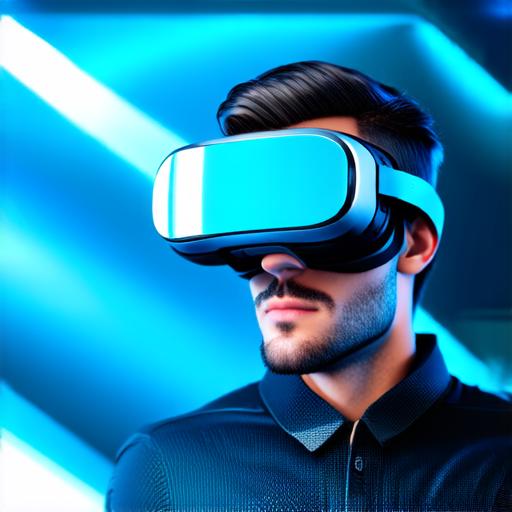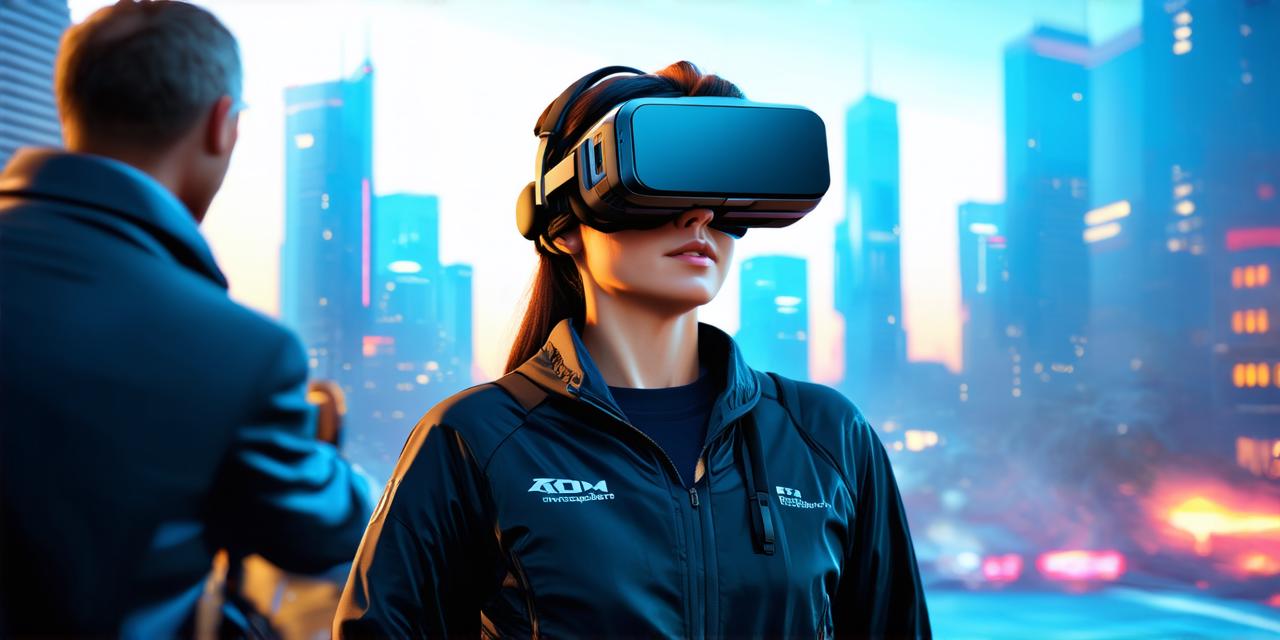Immersive Experiences: The Future of Interaction
One of the key benefits of VR technology is its ability to provide immersive experiences that blur the line between reality and virtual worlds. By wearing a headset, users can enter a fully immersive environment that simulates real-world experiences with remarkable accuracy.
This technology has revolutionized various industries, from gaming to education and healthcare.
Healthcare Benefits: Enhancing Patient Outcomes
Virtual reality technology has also proven to be a valuable tool in healthcare. It can help patients overcome phobias, manage chronic pain, and improve their overall quality of life.
For example, VR therapy has been shown to be effective in treating anxiety disorders such as PTSD, social anxiety, and fear of flying. In one study, 80% of participants who underwent exposure therapy using VR technology reported significant improvements in their symptoms.
Moreover, VR technology can also help manage chronic pain by providing a distraction from the pain and allowing patients to focus on other things. For instance, VR technology can be used during surgery to distract the patient from the pain, and after surgery, it can be used to help patients with physical therapy exercises.
In addition to these benefits, VR technology can also be used in mental health treatment. It has been shown to be effective in treating depression, anxiety, and post-traumatic stress disorder (PTSD) by providing a safe environment for patients to confront their fears and anxieties.
Accessibility: Breaking Down Barriers
Virtual reality technology can also help break down barriers for people with disabilities. For example, VR technology can be used to provide an accessible platform for individuals with visual impairments by using audio cues and other assistive technologies.
Similarly, VR technology can be used to provide physical therapy exercises for individuals with mobility issues or limited access to equipment.
Moreover, VR technology has the potential to enable people with disabilities to participate in activities that may not have been possible before. For instance, individuals with spinal cord injuries can use VR technology to experience activities like skydiving or playing sports that they may not have been able to do in real life.
Cost-Effective: A Sound Investment
Virtual reality technology may seem expensive, but it can also be a cost-effective solution for many businesses.
For example, VR technology can help reduce the need for physical training equipment and facilities by providing an immersive training experience that can be done from anywhere with a headset. This can save businesses money on equipment and maintenance costs.
Moreover, VR technology can also be used to provide virtual product demos, which can save businesses money on shipping and storage costs. This can also help businesses reach a wider audience by enabling them to showcase their products in different locations around the world without having to physically ship them there.
FAQs: Frequently Asked Questions
1. Is virtual reality technology expensive?
While VR technology may seem expensive, it can also be a cost-effective solution for many businesses by reducing the need for physical training equipment and facilities.
2. What are some common uses of virtual reality technology in healthcare?
Virtual reality technology can be used to treat anxiety disorders, manage chronic pain, enhance patient outcomes, and improve overall quality of life.
3. How can virtual reality technology help break down barriers for people with disabilities?
VR technology can be used to provide accessible platforms for individuals with visual impairments, physical therapy exercises for individuals with mobility issues or limited access to equipment, and enable people with disabilities to participate in activities that may not have been possible before.
4. What are some cost-effective benefits of virtual reality technology?
Virtual reality technology can reduce the need for physical training equipment and facilities, provide virtual product demos, and enable businesses to reach a wider audience by showcasing their products in different locations around the world without having to physically ship them there.
5. How can virtual reality technology enhance patient outcomes in healthcare?
VR therapy has been shown to be effective in treating anxiety disorders such as PTSD, social anxiety, and fear of flying, managing chronic pain, and improving overall quality of life.

Summary: A World of Possibilities
Virtual reality technology offers a plethora of benefits that can transform the way we interact with the digital world. From immersive gaming experiences to healthcare and accessibility, VR technology has the potential to revolutionize various industries. As developers, it’s essential to stay up-to-date on the latest developments in this rapidly evolving technology and leverage them to create innovative solutions that can benefit society as a whole.
